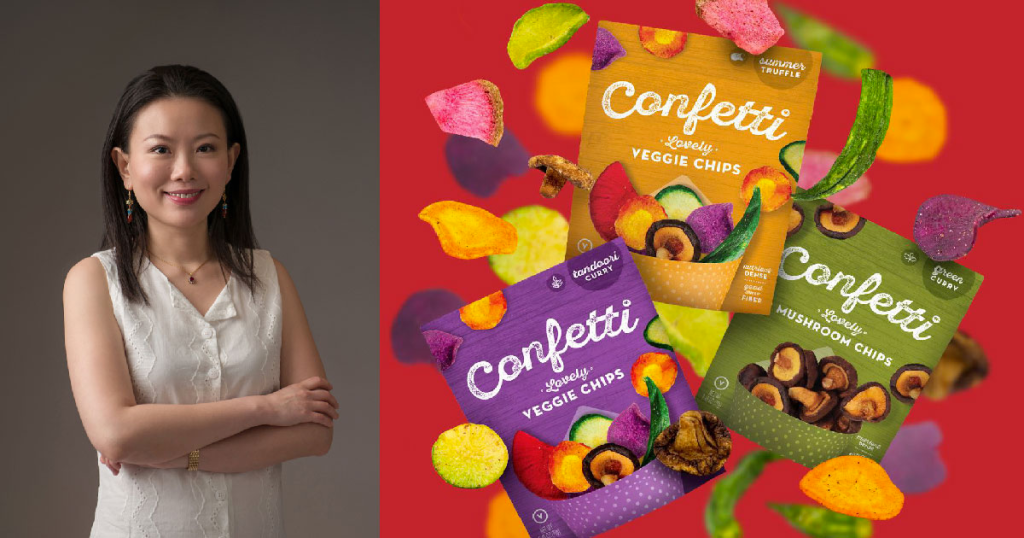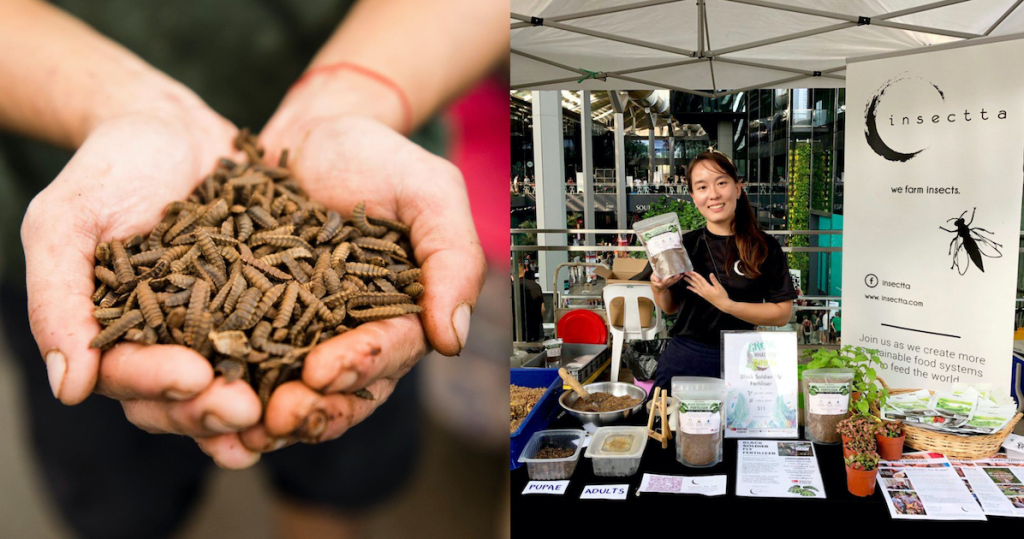It’s challenging to describe trishaws — a tricycle with a sidecar that’s propelled solely by the sheer power of a cyclist — to those who had never seen one, let alone foreigners who had never travelled nor lived in Asia.
Yet, Betty Lu tried her hardest to explain it at a trade show in the US, because she wanted her clients to appreciate why she named her newly-founded food company ‘Trishaw Treats’. For at least half an hour, Betty patiently detailed to her baffled audience how this traditional vehicle embodies the rich Asian culture that her brand is trying to celebrate.
“So, where is Singapore?” A question emerged from the crowd. “Is it part of China?” Now, Betty had to pull out Google Maps on her smartphone to clarify that they are two separate countries.
At this point, it dawned on her that the brand was not working out. It was too niche for the US market and had started to cause confusion. There is a need to distill the brand DNA down to a singular, universal message that could sell itself on the shelves.
Hopefully, something more relevant and resonates with anyone, regardless of their geographical knowledge or cultural nuances — especially since she couldn’t be around all the time to let her clients know what trishaws are.

Betty eventually renamed her brand to Confetti Fine Foods, specialising in gourmet snacks made from colourful and nutritious vegetables.
Rebranding was one of the most expensive mistakes I’ve ever made. But it taught me its importance and why it’s a valuable asset to any company in the food space.
– Betty Lu, founder of Confetti Fine Foods
The mistakes of not branding right
The toll of missteps is dear. It can cripple a thriving enterprise and tarnish the hard-earned reputation of its leaders.
No one wants to admit to a blunder that jeopardises their ambitions, which perhaps explains why so few founders are willing to spill the beans on the biggest or costliest mistakes made in their entrepreneurial journey.
For the courageous few, like Betty and Trixie Khong, they expressed not getting the right messages out to their clients is something they’d not want to commit again. Trixie echoed Betty’s struggles with branding, recounting the early days of her jewellery line By Invite Only, and her initial infatuation with the concept of artisanal, handcrafted pieces.

Trixie assembled a team of skilled artisans to produce her jewellery from scratch, convinced that this approach would give her more design flexibility and greater control over the inventory. Little did she know that her handmade jewellery were too delicate and fragile for the local climate and humidity.
“Our products simply couldn’t hold up to wear-and-tear,” Trixie confessed. Additionally, the hand-crafted approach proved to be a major bottleneck for the company’s growth.
As a small jewellery label, By Invite Only lacks the resources to invest in expansive machinery or expand its team of crafters or silversmiths.
“Fundamentally, the business model was flawed because too much time and effort were put in production and being a jewellery-making factory” noted Trixie.
It became clear that she had no choice but to dissolve the crafting department and retooled the company’s operations from the ground up.
Freelance crafters were replaced by trusted supplier and partner that oversee the manufacture, repair, and servicing of the jewellery. The job responsibilities of full-time crafters were repurposed. All these took place simultaneously as the continuous launch of new arrivals every month.
Today, By Invite Only prides itself to be a sustainable jewellery label, carrying pieces that are carbon neutral that do not cause any harm to the Earth. They are also free from nickel, lead and cadmium — toxic ingredients often found in jewellery that result in skin irritation. Through it all, Trixie learnt a precious lesson.
Founders need to understand their own strengths, weaknesses, and what makes them unique. Once you have done that, you can either devise a system to optimise your workflow or hire someone who is better to fill the gaps.
– Trixie Khong, founder of By Invite Only
When perfectionism gets its way

At times, it’s easy for founders to become trapped in the pursuit of flawlessness. It’s a pitfall that Sher Yun, co-founder of Style Degree, an e-commerce platform which supplies home essentials, travel organisers, and everything in between, is determined to avoid.
She trusts that, sometimes, it’s better to unveil a good product sooner rather than waiting for the perfect product later. After all, how can one determine if a product is perfect without the feedback of consumers?
Launching a good product early on allows for quicker access to customer reviews and feedback, leading to an enhanced version of the same product thereafter.
Trixie, on the other hand, notes that perfectionism or even obstinacy, may not entirely be a bad thing when it comes to ensuring product quality or asserting certain core company values that founders are deeply passionate about.
“Things like having a no ‘jerks’ policy or going sustainable are ‘fire’ within you that you wish it never goes out,” she said. However, don’t let perfection prevents progress. Trixie encourages aspiring entrepreneurs to take the plunge and not let the fear of an imperfect product hold them back.
“I had spoken with many young, potential entrepreneurs who never have the confidence to launch because they believe what they are building isn’t ‘good enough’.”
Trixie added she had prematurely kickstarted her jewellery business when she was a teenager. It was nowhere near perfect to say the least, as Trixie was unable to know who her real audience was or get a product-market fit.
But she learnt a lot through her mistakes along the way, and didn’t regret it because at least she did something – she started and built something with her hands.
“The most damaging, in my opinion, is in fact, founders thinking they are the ‘smartest person’ in the room,” said Trixie. “Perfectionism should be caring deeply for the work you do, not yourself as a person.”
Sher Yun concurred with this sentiment, pointing out that mistakes are all “part of the process”.
Mistakes are the best teachers, and they are unavoidable. While Style Degree is a small, growing company that can’t afford to luxury of making too many costly mistakes, we still made a fair share of them over the years.
– Sher Yun, co-founder of Style Degree
Don’t be afraid to take calculated risks
Insectta may have started as Singapore’s first insect-focused company, when Chua Kai-Ning and her co-founders saw Black Solider Fly’s ability to grow efficiently on organic matter and would valorise agricultural and food waste into animal feed and fertiliser.
However, with limited space, expensive manpower, a lack of experience in agriculture, coupled with the challenges of supplying animal feed and fertilisers at the price point farmers required, the team quickly realised running an insect farm in Singapore is not an easy task.
Kai-Ning and her co-founders were left with two choices: move the farm out of Singapore, or pivot the business.
They chose the latter and focused on developing a patented technique to derive high-value, highly functional chitosan, and melanin from Black Soldier Fly.

According to Kai-Ning, these biomaterials are great for the pharmaceutical, personal wellness, organic electronics industries. This will expand the application of Black Soldier Fly beyond just animal feed and fertiliser, but a new and circular source of materials that multiply the value of the insect industry.
In January 2023, Insectta moved to the new Insect Biomaterial Extraction Pilot Plant in Jurong West. The company hopes to see acceptance and uptake of insect biomaterials into mainstream applications globally, alongside the progress of the entire insect industry.
Kai-Ning noted it’s crucial for companies to better understand the targeted industry, their capacities, and resources before tapping on hype. At the same time, it’s clear that taking a certain level of calculated risks and being ready to adapt a new business model when needs arise are just as vital.
“You never know if the pivot will end up elevating the company to new heights,” expressed Kai-Ning.
Betty shared a similar piece of advice when it comes to acquiring talents.
Hire people with the right caliber and trust them completely to do their jobs and support them are calculated risks that companies need to make. It’s true that many founders want to be overly involved, but I have learnt over the years that being able to delegate responsibilities is important too.
– Betty Lu, founder of Confetti Fine Foods
She further described founders as “captains of the ships”. They deploy the right crew, cook, handymen, and servers on board, not shouldering all the duties by themselves. “Similarly, we need to support and guide employees in the right directions and have faith that they will execute,” Betty added.
Ultimately, these fearless founders have shown that not all mistakes are fatal and admitting to their faults is not weakness, but rather a sign of strength and resilience.
Following Betty’s descriptions, perhaps it’s necessary for entrepreneurs to navigate through rough waters to reach their destinations. As the saying goes, smooth seas don’t make skilful sailors.
Featured Image Credit: Insectta / By Invite Only / Confetti Fine Foods / Style Degree








